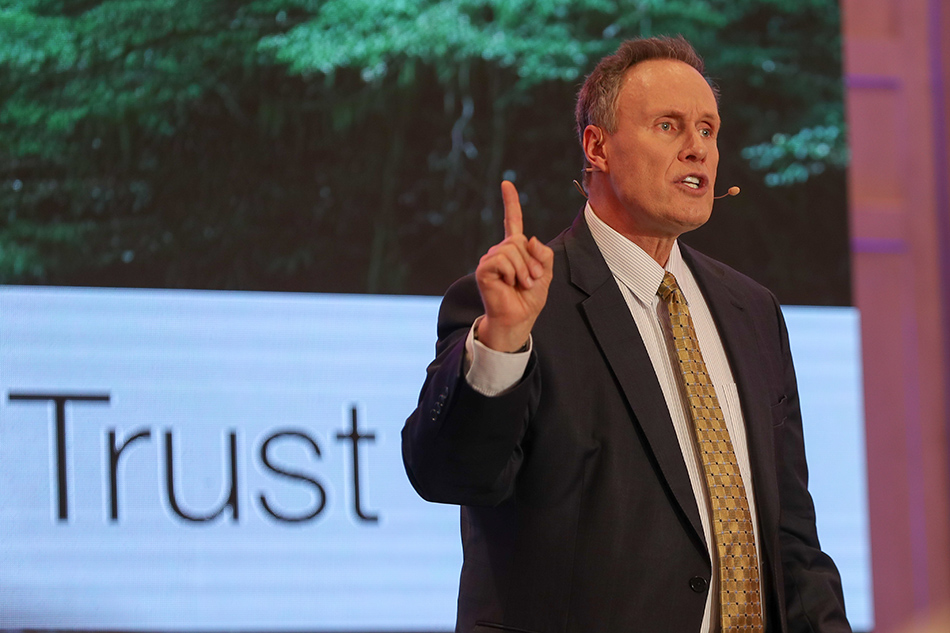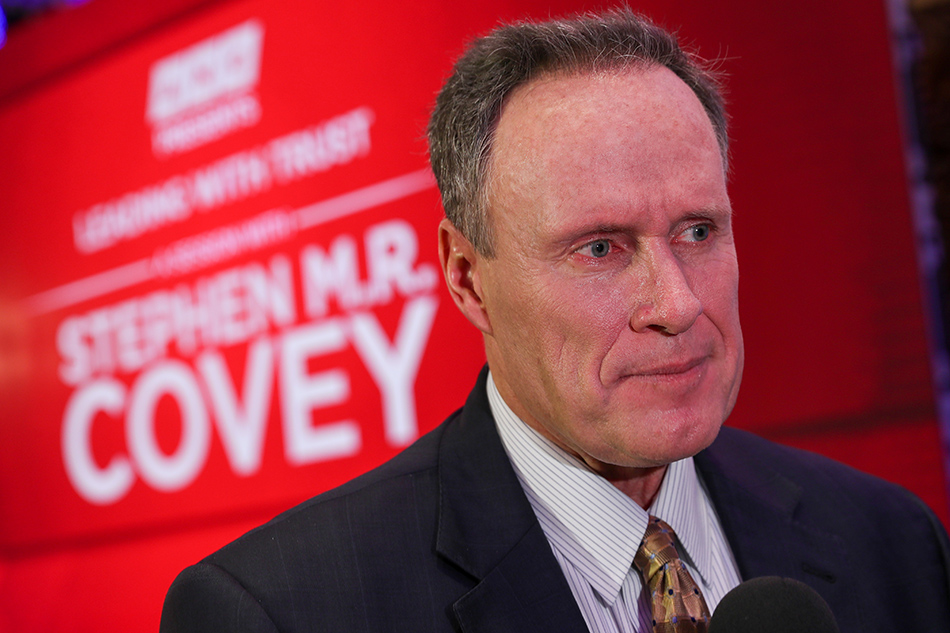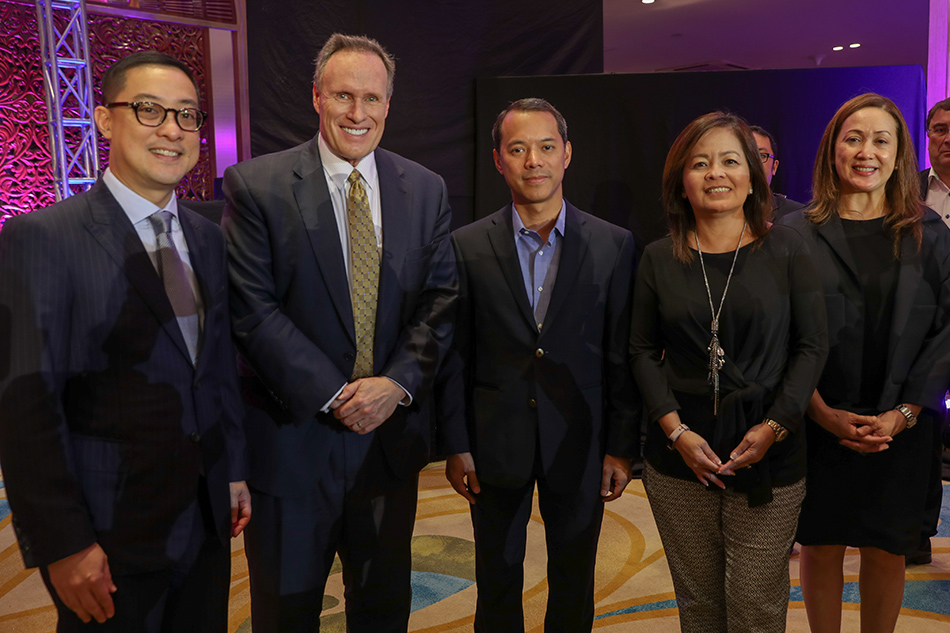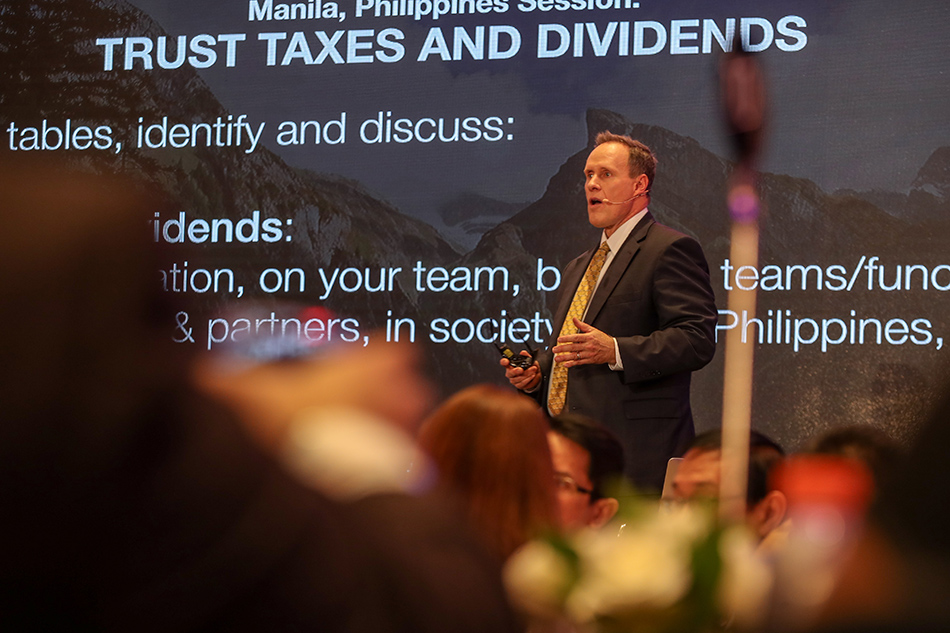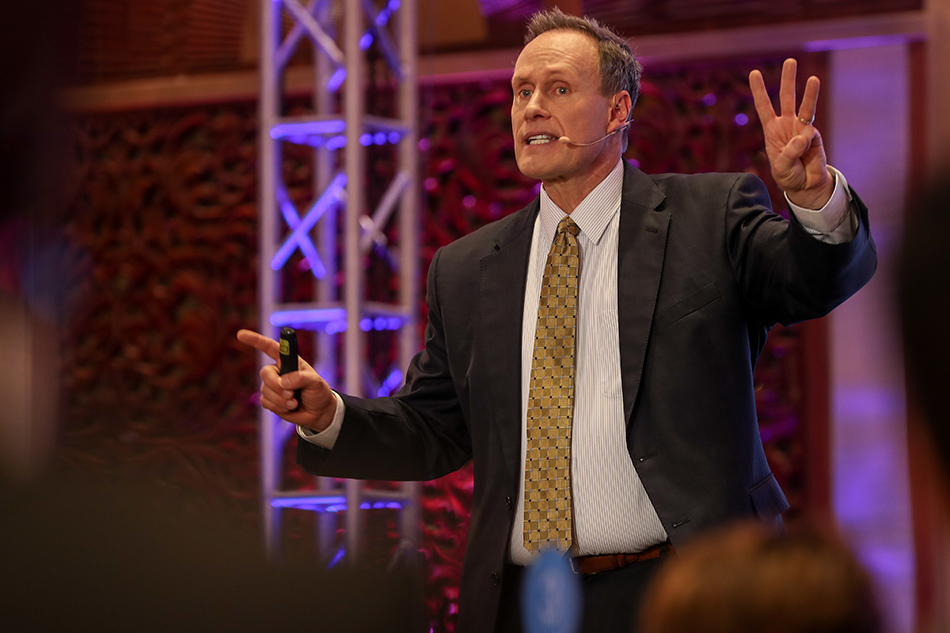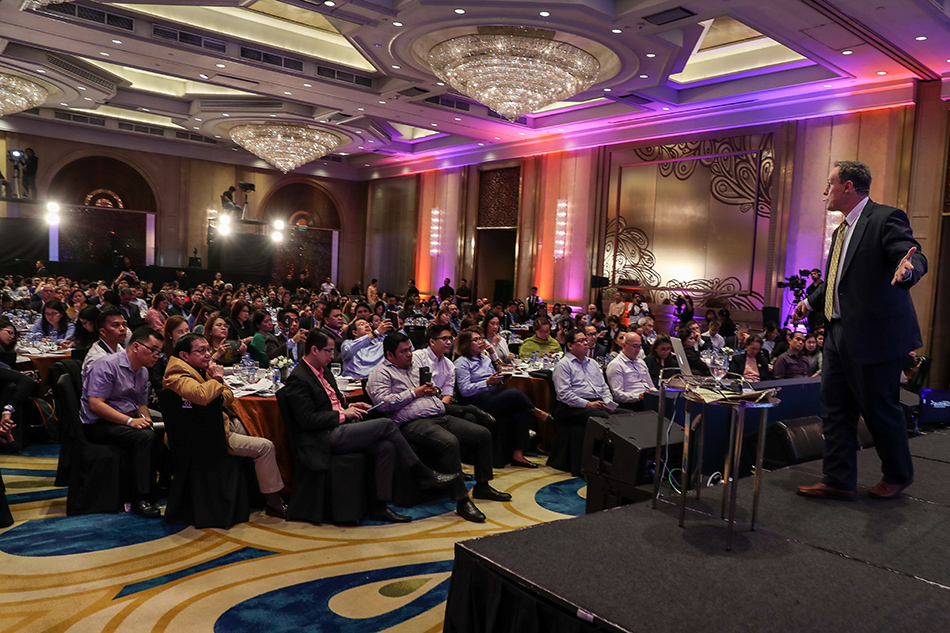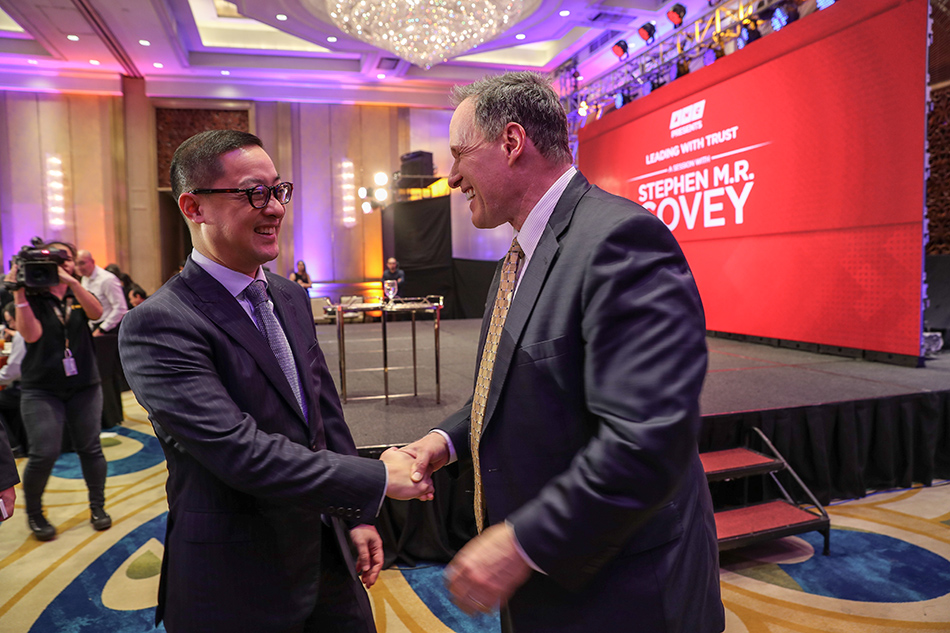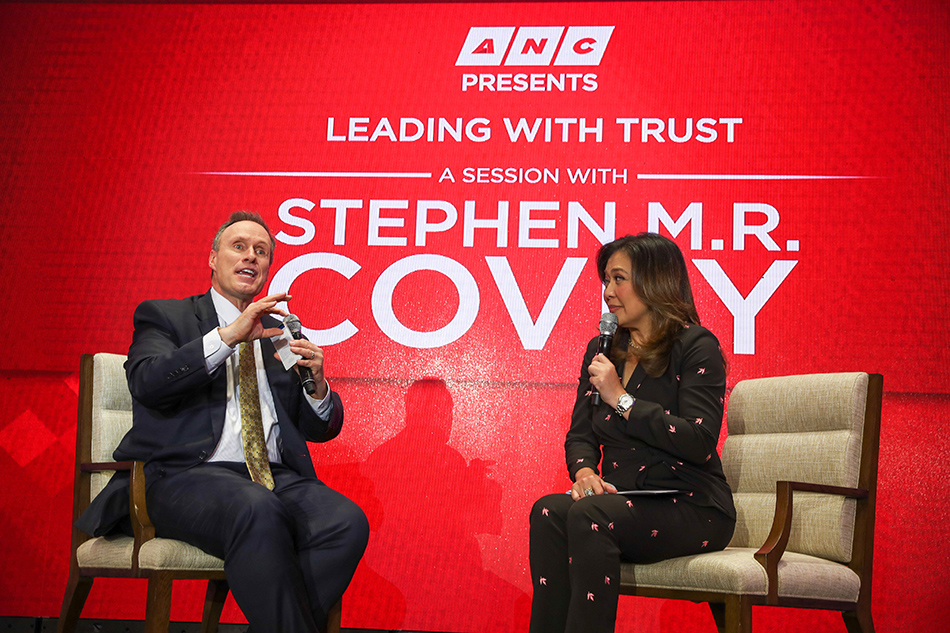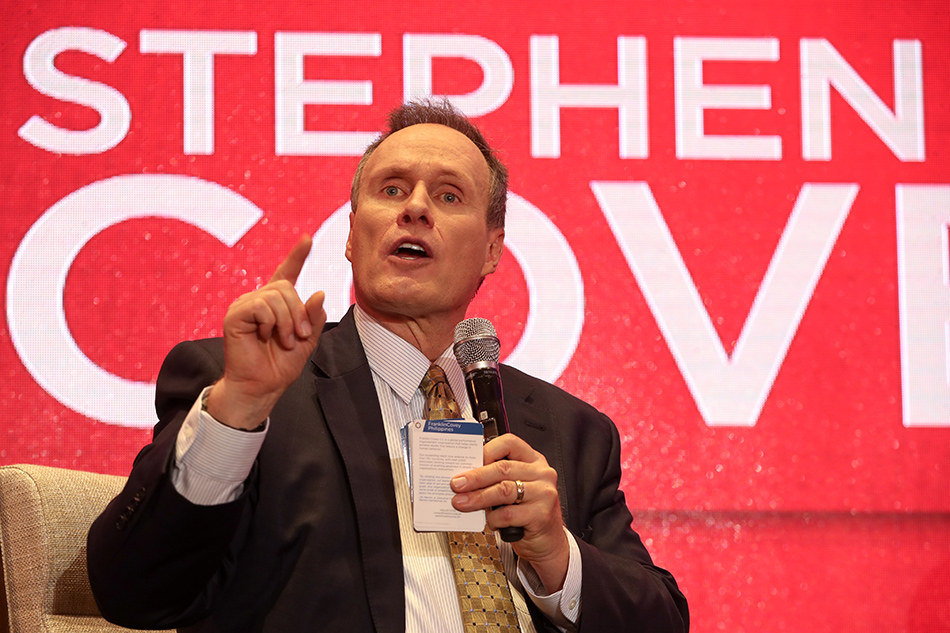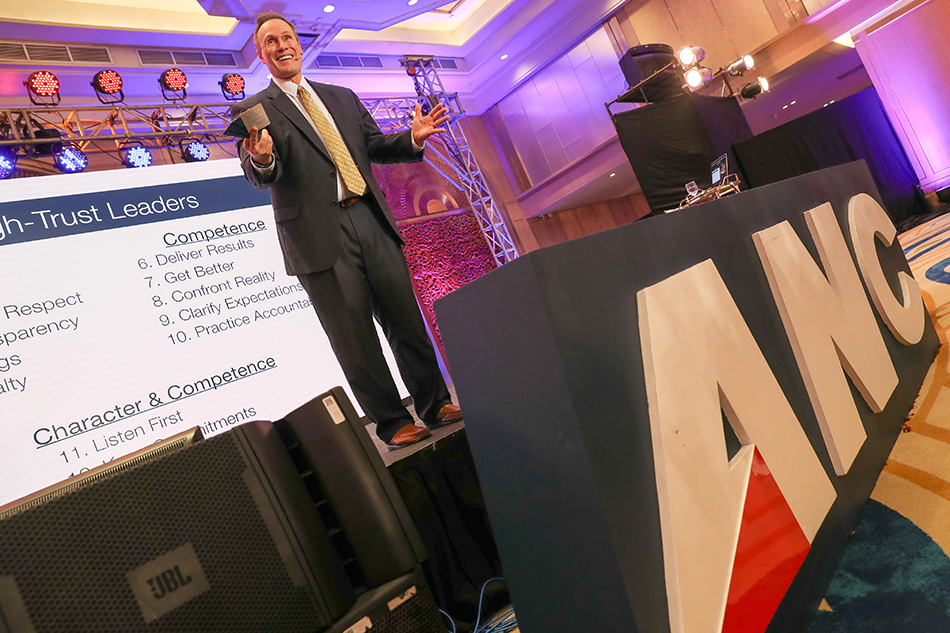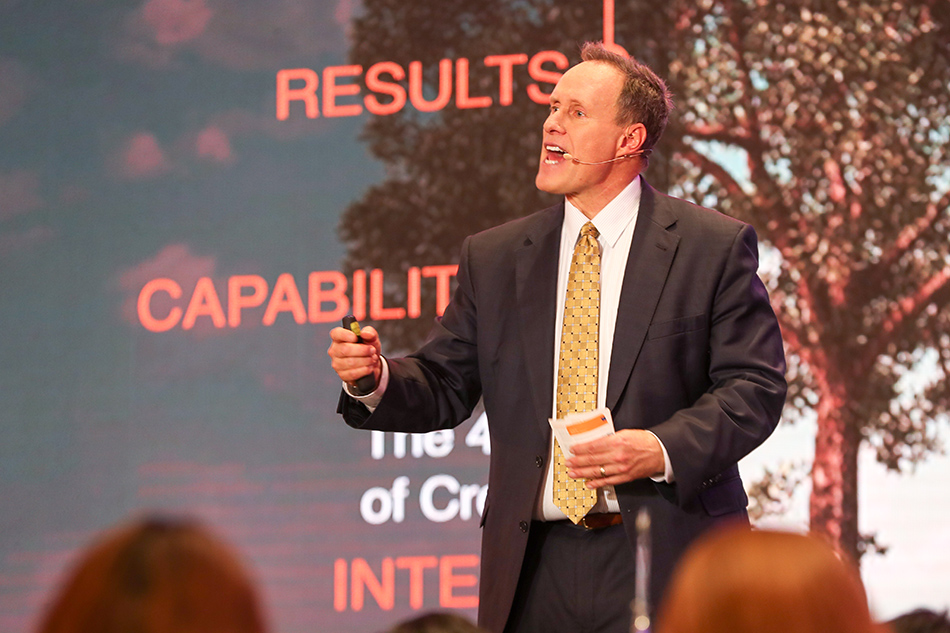Trust is the new currency: leadership guru Stephen M.R. Covey | ABS-CBN
ADVERTISEMENT

Welcome, Kapamilya! We use cookies to improve your browsing experience. Continuing to use this site means you agree to our use of cookies. Tell me more!
Trust is the new currency: leadership guru Stephen M.R. Covey
Trust is the new currency: leadership guru Stephen M.R. Covey
Jessica Fenol,
ABS-CBN News
Published Jun 19, 2018 06:25 PM PHT
|
Updated Jun 19, 2018 09:42 PM PHT
MANILA – Leaders should learn the "economics of trust" and make it work for them, world renowned leadership speaker and author Stephen M.R. Covey said on Tuesday.
MANILA – Leaders should learn the "economics of trust" and make it work for them, world renowned leadership speaker and author Stephen M.R. Covey said on Tuesday.
Trust fosters employee productivity and growth in companies, Covey said during his workshop “Leading with Trust: A session with Stephen M.R. Covey."
Trust fosters employee productivity and growth in companies, Covey said during his workshop “Leading with Trust: A session with Stephen M.R. Covey."
“Trust, tiwala, is our new currency. Trust is financial, not just social and you can put an economic value on it,” Covey said during the event sponsored by ANC.
“Trust, tiwala, is our new currency. Trust is financial, not just social and you can put an economic value on it,” Covey said during the event sponsored by ANC.
Anytime there is a low level of trust, companies suffer from "low-trust tax" while high-trust environments gain "dividends," he said.
Anytime there is a low level of trust, companies suffer from "low-trust tax" while high-trust environments gain "dividends," he said.
ADVERTISEMENT
"Nothing engages people like being trusted and nothing disengages people like not being trusted. If you want to attract and retain people, trust them," he said.
"Nothing engages people like being trusted and nothing disengages people like not being trusted. If you want to attract and retain people, trust them," he said.
Reciprocal trust between leaders and employees accelerates learning, and fosters collaboration and innovation. Lack of trust, meanwhile results in dishonesty, disengagement and "politics," Covey added.
Reciprocal trust between leaders and employees accelerates learning, and fosters collaboration and innovation. Lack of trust, meanwhile results in dishonesty, disengagement and "politics," Covey added.
“When the trust goes down in a team, the speed goes down with it. Everything will take you longer and everything will cost you much, much more,” he said.
“When the trust goes down in a team, the speed goes down with it. Everything will take you longer and everything will cost you much, much more,” he said.
The best way to benefit from it is through practicing “smart trust” or the high propensity for trusting people followed by analysis and wise judgement.
The best way to benefit from it is through practicing “smart trust” or the high propensity for trusting people followed by analysis and wise judgement.
"Start with high propensity to trust - a bias, a desire, an inclination to trust people. It opens up possibilities, options you’ve never seen before," he said.
"Start with high propensity to trust - a bias, a desire, an inclination to trust people. It opens up possibilities, options you’ve never seen before," he said.
When asked about the risks of trusting too much, Covey said there is a greater risk in not trusting people.
When asked about the risks of trusting too much, Covey said there is a greater risk in not trusting people.
"If we don’t trust people how will we engage them, innovate, create, inspire, be a team? You can trust too much and get burned but you can also not trust enough and you wouldn't see the possibilities," he said.
"If we don’t trust people how will we engage them, innovate, create, inspire, be a team? You can trust too much and get burned but you can also not trust enough and you wouldn't see the possibilities," he said.
ADVERTISEMENT
ADVERTISEMENT



